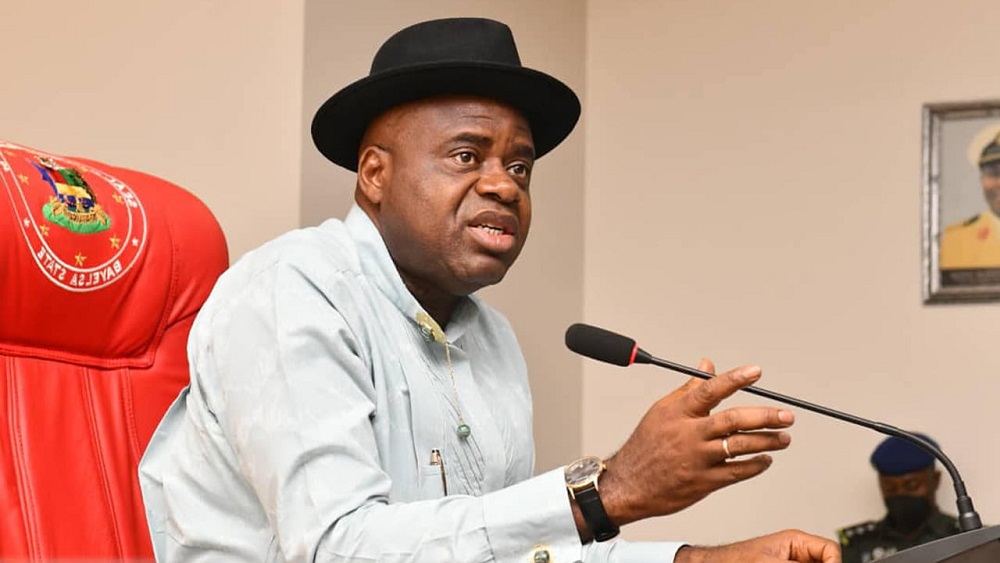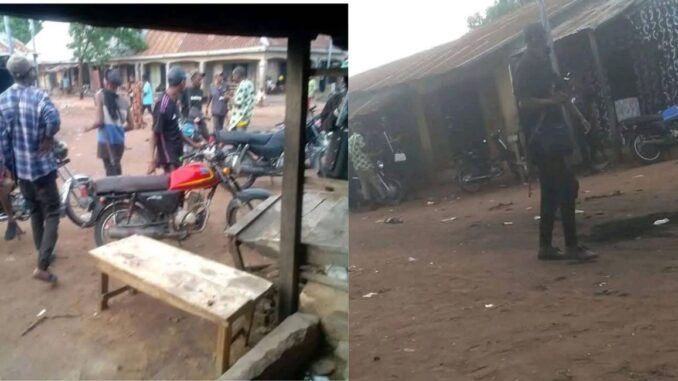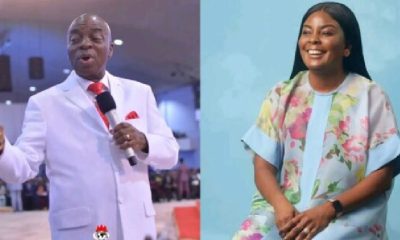News
Bayelsa demands reparation, environmental cleanup over oil pollution

Bayelsa Governor, Douye Diri, has demanded reparations and an extensive environmental cleanup to address decades of ecological devastation caused by crude oil exploration in the State.
Speaking to journalists at the State House, Abuja, after a meeting between Bayelsa’s political and traditional leaders and President Bola Ahmed Tinubu, Diri highlighted the severe environmental and health crises facing his state due to unchecked oil activities.
The Bayelsa leaders said they were paying a thank you visit on the President for the appointment of one of their daughters, Mrs. Didi Lawson-Jack, as the Head of the Civil Service of the Federation, among other important appointments from the state.
Diri, who presented the Bayelsa State Oil and Environment Commission Report to Tinubu during the meeting, pointed to the extensive damage in the state’s rivers and rural areas, where oil pollution has permeated the waterways, damaging the ecosystems and local economies.
The Governor also raised concerns over the alarming rise in cancer cases and other unusual illnesses among Bayelsa’s residents, linking these health crises to prolonged oil pollution.
The report he referenced traces these health issues directly to the oil industry’s operations, underscoring the urgent need for a comprehensive response.
He stressed that the livelihoods of Bayelsa residents, many of whom rely on fishing and farming, have been devastated by widespread pollution.
Diri urged the Federal Government to prioritise environmental restoration, similar to ongoing efforts in Ogoniland through the Hydrocarbon Pollution Remediation Project (HYPREP).
Diri noted that oil companies must assume responsibility for the damage, regardless of whether it was caused by equipment failure or acts of sabotage, pointing out that international laws hold companies accountable for pollution resulting from their facilities and equipment.
“Well, the report is there. If you’re asking for the recommendations, they are not just one. They are not two. But what is more important there is the issue of our environment and in that recommendation, they are talking about the clean-up, you know about the Ogoni situation, and HYPREP, and our environment is totally gone.
“If you go into the rivers and the rooflets of Bayelsa state, you will be perceiving oil, economic activities of our people have been grounded, and up until today, you still have oil pollution all over the state.
“So the number one thing is, first of all, restore the environment, clean up the environment, and of course, you have to pay reparations, and those who have caused these damage, most times they say, Oh, it is as a result of sabotage.
“But international law doesn’t recognize sabotage. You own those facilities and equipment, whether the oil spillages were as a result of sabotage or ageing equipment, which is most times the case, equipment failures, reparations have to be paid.
“As I speak with you today, issues about cancer are now almost like a normal thing in Bayelsa state, and this report has traced it to the activities of the oil companies, oil exploration and all other types of very bizarre types of sicknesses that were not hitherto known to the people of Bayelsa”, he said
News
Reps Tackle CBN, OAGF Over Missing Grants, Bailout Funds

According to him, such financial mishandling not only disrupts critical public services and projects but also results in major losses to the nation’s purse—resources that could have been channelled into crucial services and developmental efforts, as laid out in Section 14(2)(b) of the Constitution.
Speaker Abbas, thereafter setup a Special Committee to be chaired by Rep. Chinedu Martins to immediately launch a probe into the “Utilisation of take-off grants, bailout funds, and interventions allocated to MDAs, government institutions, and GOEs from 2015 to present.”
News
Abuja light rail project must be commissioned on May 29-Wike vows

The FCT Minister, Mr. Nyesom Wike, expressed satisfaction with the progress on the Abuja light rail project, reaffirming its May 29 delivery as sacrosanct.
He made these assurances after inspecting the ongoing construction of access roads to the train stations on Wednesday, from Metro Train Station in the Central Area to Nnamdi Azikiwe International Airport, Abuja.
Reassuring journalists accompanying him, the minister reiterated that President Bola Tinubu would commission the rail project on May 29 to mark his second year in office.
The visited stations were Wupa station near Idu and Bassanjiwa station near the airport.
“This is part of our routine inspection of ongoing projects to see the contractors’ progress,” Wike explained.
“We are working day and night to fulfill our promise to President Tinubu and FCT residents. By May, Mr. President will ride on the Metro line.”
News
Just in: Alleged Herdsmen Armed With AK-47 Rifles Take Over Communities In Benue State

Gunmen suspected to be Fulani herdsmen are currently invading some communities in the Ukum Local Government Area of Benue State.
According to sources, the herdsmen armed with AK-47 rifles stormed the community around 04:15pm on Thursday.
“Our lives are in danger this evening, armed Fulani herdsmen, about 600 in numbers have taken over our communities this evening,” a resident told SaharaReporters.
“They’re currently moving around towns in Ukum Local Government Area of Benue state. No security personnel at all, Governor Alia didn’t send security, they said operation will start soon once they (herders) have observed the place.”
The insecurity situation in Benue has been alarming in recent weeks with attacks from gunmen suspected to be herdsmen.
The media had reported that suspected herdsmen again unleashed terror in Benue State, attacking three communities in Otukpo Local Government Area (LGA) on Wednesday, just a day after 11 people were killed in a deadly raid on Otobi community.
The latest victims of the escalating violence were Emichi, Odudaje, and Okpamaju, communities that had previously suffered an attack in February, which left five people dead.
However, the renewed attack has created fear and mass displacement among residents, with women and children fleeing to safety.
Local sources say the death toll from the fresh attack remains unclear, but several casualties are feared.
-

 News11 hours ago
News11 hours agoBREAKING: Unknown gunmen reportedly storm Senator Natasha’s family residence
-

 News14 hours ago
News14 hours agoSnub story on removal of Rivers Sole Administrator, it’s FAKE-Chief Registrar
-

 News19 hours ago
News19 hours ago“How my father escaped assassination” – Bishop Oyedepo’s daughter
-

 News20 hours ago
News20 hours agoFG expresses sympathy for CBEX victims, urges a united effort to combat Ponzi schemes
-

 News13 hours ago
News13 hours agoSAD! Again, Alleged Herdsmen Attack Three Benue Communities
-

 Politics13 hours ago
Politics13 hours agoPDP govs are jokers, can’t stop coalition train, Atiku boasts
-

 News5 hours ago
News5 hours agoAbuja light rail project must be commissioned on May 29-Wike vows
-

 News10 hours ago
News10 hours agoLawmaker Slams NBA Over Rivers Crisis, Demands Return of N300m





